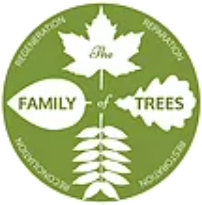Going green has to be a way of living, and that means for the family as a whole. You and your kids need to learn what living a healthier, more eco-friendly lifestyle is all about, and why it is important. Here are some tips and teaching ideas to guide your kids into "eco-children" from infant through high school:
Eco-baby
Baby skin: Wash with warm water only and purchase organic products as your child grows.
Diapers: Consider the environment in your diapering choice. Disposable diapers are the third largest single consumer item in landfills. Home-washing cloth diapers has only 53% of the ecological footprint of disposables.
Avoid Toxins: Review products for the presence of the toxic chemical, polyvinyl chloride (PVC) by looking for the number 3 or a V. (For a thorough discussion of harmful plastics and alternatives, refer to preventingharmmn.org.)
Breastfeeding: Breast milk has no ecological footprint.
Eco-toddler through preschool
H2O: Use a small stream when washing hands and only fill the bathtub as necessary
Save Energy: Turn off the lights when leaving a room.
Recycle: Include your children in the routine of sorting the recycling and putting it out for pick up.
Avoid Toxins: Replace cleaners and personal products with non-toxic products. Also consider an organic mattress or a natural rubber moisture barrier to place over your existing mattress.
Nourishing Food: Visit the farmers market or local farm and let your children find the vegetables on your list. Have your children compost any scraps or leftovers.
Transportation: Walk or bike whenever possible (e.g. walk to the park, local market or post office).
Eco five- through eight-year olds
H2O: When brushing teeth, turn the water off when it is not needed and set a timer when using the shower.
Save Energy: Walk, bike or use the bus. Unplug all electronics at night.
Avoid Toxins: Review the cleaning products used in the schools. When school clothes shopping, choose organic or sustainable fibers versus conventional cotton.
Eco-Tasks: Include some in your child’s daily and weekly routines like: emptying the compost bin.
Eco nine- through twelve-year olds
H2O: Wash produce before eating using a bowl of water rather than running the faucet.
Save Energy: Add clothing layers when cold and open the window when hot.
Avoid Toxins: Avoid the microwave.
Waste: Teach your children not to litter and talk about the packaging of the products they consume.
Nourishing Food: Give your children their own plants to care for as well as garden chores.
Transportation: Carpool, take the bus or walk to extra curricular activities.
Eco-Gifting: Gift consciously and from the heart.
Eco 12- through 15-year olds
H2O: Wash dishes using a basin and a thin stream of water, or fill one large bowl with soapy water, and another with clean rinsing water. By machine, scrape dishes off but do not rinse with water.
Energy: Don’t keep the refrigerator door open.
Toxic Exposure: Use only non-toxic school supplies.
Waste: Purchase refillable pens for use at school and home. If something breaks, fix it or call the manufacturer.
Food: Involve your kids in the food preparation. Search for community events. Introduce children to new foods, have them pick recipes and explore the rewards of organic food together. Juice together every morning!
Transportation: Use a push mower instead of a gas mower and leave the grass cuttings on the lawn as natural fertilizer. Find out if the bus driver keeps the bus idling when stopping to pick up children.
These are just a few ideas and as you include ecologically minded decisions in your daily routine, so will your children. Conscious children = conscious adults = a healthier environment.
Originally published on the blog ecomama.squarespace.com; for the full article refer to: ecomama.squarespace.com.







